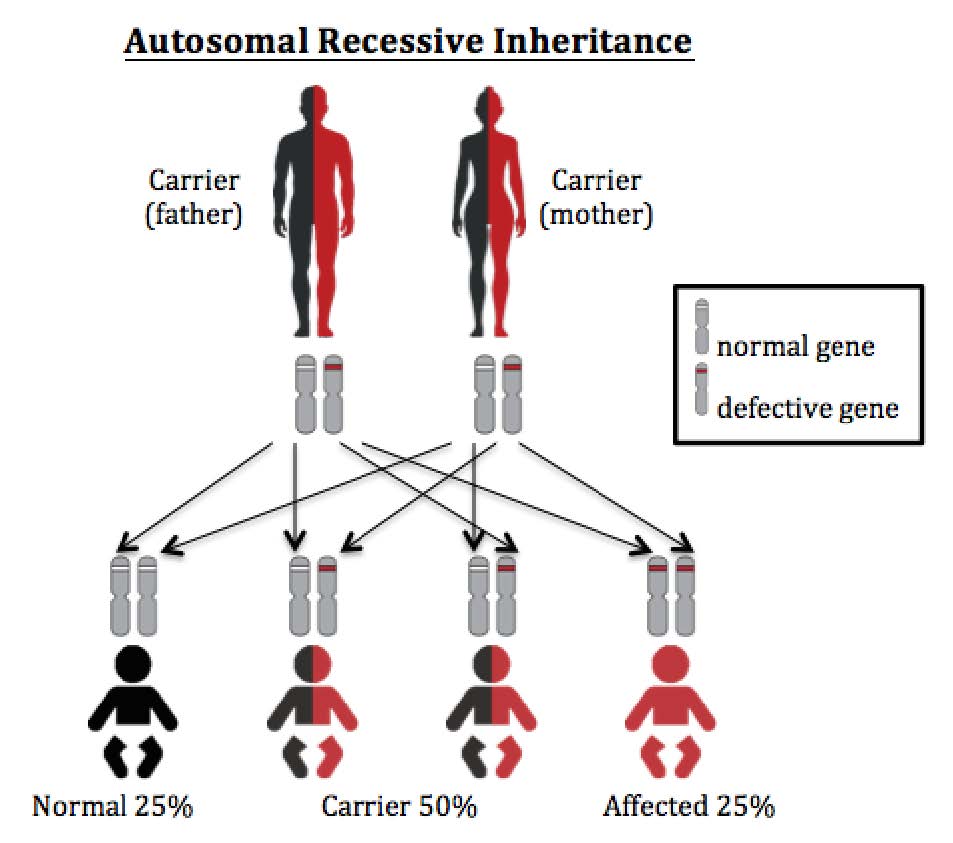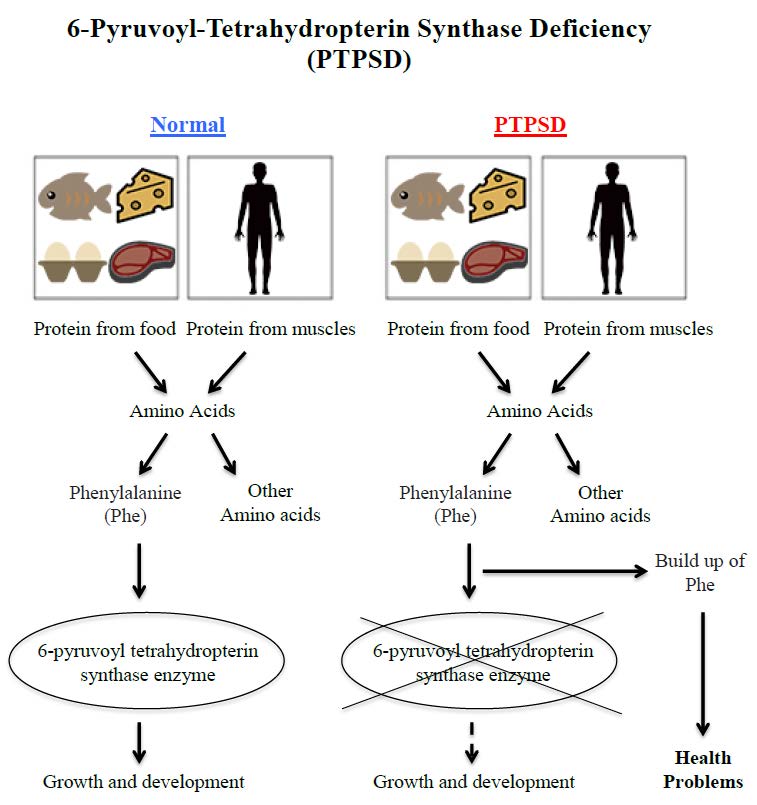
PTPSD is a rare but treatable amino acid disorder. People with amino acid disorders cannot process amino acids, the building blocks of protein.
After digestion, our body breaks down food into small molecules for further use. For example, protein is broken down into its building blocks, which is called amino acids. Amino acids are then processed by special chemicals called enzymes so that the body can use them. Different enzymes target specifically at different amino acids. Some enzymes require chemicals called co-enzymes for proper functioning.
Babies with PTPSD lack the enzyme called "6-pyruvoyl-tetrahydropterin synthase", an enzyme needed for production of a chemical called "tetrahydropterin" (BH4).
BH4 is an essential co-enzyme for several important enzymes in the body. Inadequate BH4 will affect the conversion of amino acid phenylalanine into another amino acid called tyrosine by the other enzyme. Tyrosine, which is vital for the brain functioning, may be insufficient. The function of neurotransmitters of which transmitting signals through nerve cells will also be affected. Moreover, the accumulation of phenylalanine causes long term brain damage.

The original graphic is converted into the following text version for your easy access to the information.
6-pyruvoyl-tetrahydropterin synthase deficiency (PTPSD)
Our body breaks down protein in food into amino acids when we eat and breaks down protein in our muscles into amino acids during prolonged fasting and stress. When functioning normally, 6-pyruvoyl-tetrahydropterin synthase will be produced in our body to help produce BH4 for the conversion of amino acid phenylalanine to another amino acid called tyrosine, for the purpose of growth and development. In people with PTPSD, the 6-pyruvoyl-tetrahydropterin synthase enzyme is either missing or not working properly, making the amino acids phenylalanine fail to convert into tyrosine properly. As a result, Phenylalanine will build up in the body to a harmful level and cause serious health problems.
Everybody has two copies of genes, one from each parent, which tell the body how to make specific enzymes.
PTPSD is an autosomal recessive disease. Only when babies inherit two faulty copies of the gene for PTPSD from parents, the enzyme made does not work properly or is not even made at all.

The original graphic is converted in to the following text version for your easy access to the information.
Autosomal recessive inheritance
In autosomal recessive diseases, people with two faulty copies of gene (one from father and one from mother) will develop symptoms. People with only one faulty copy of gene are normal and they are called disease carriers.
PTPSD is inherited in autosomal recessive manner. If both parents are PTPSD carriers, for each pregnancy (no matter it is a baby boy or girl), there is a 25% (1 in 4) chance that the child has 2 copies of normal gene (who is not affected), a 50% (1 in 2) chance that the child has one normal and one faulty gene who is a carrier like the parents, and a 25% (1 in 4) chance that the child has two copies of faulty gene who is at risk for PTPSD.
Babies with PTPSD are usually healthy at birth. They gradually develop progressive and irreversible brain damage, leading to neurological disorders, learning difficulties and behavioural problems.
If right treatment is started early, babies with PTPSD are well and can have healthy and active lives.
PTPSD can be treated with BH4 and medicines that help in restoring the normal function of signal transmission through the nerve cells.
Patients with PTPSD need to see their specialist metabolic team and have blood tests regularly even when they do not have symptom.
If you are worried that your baby is ill, it is important to follow medical advice. Bring your baby to your local accident and emergency department immediately. When you are going to hospital, bring the prescribed medicines, any information that you have been given about PTPSD, including this pamphlet, with you.
For general queries on Newborn Screening Programme for Inborn Errors of Metabolism, please call 5741 4280 (Department of Clinical Genetics, Hospital Authority)
July 2024
Hospital Authority